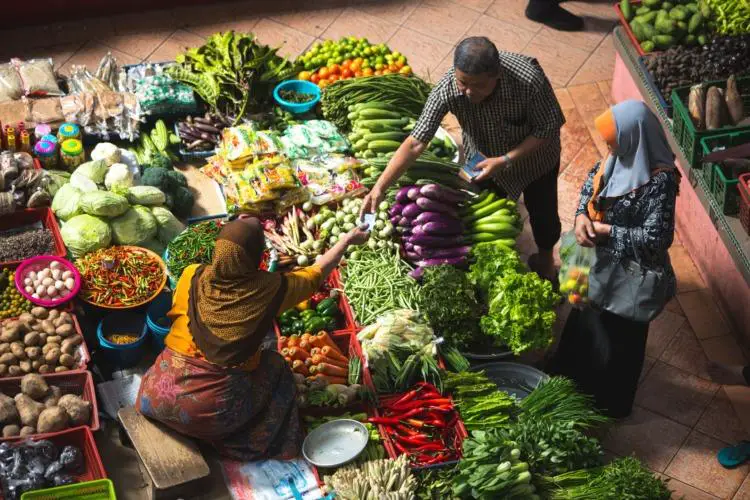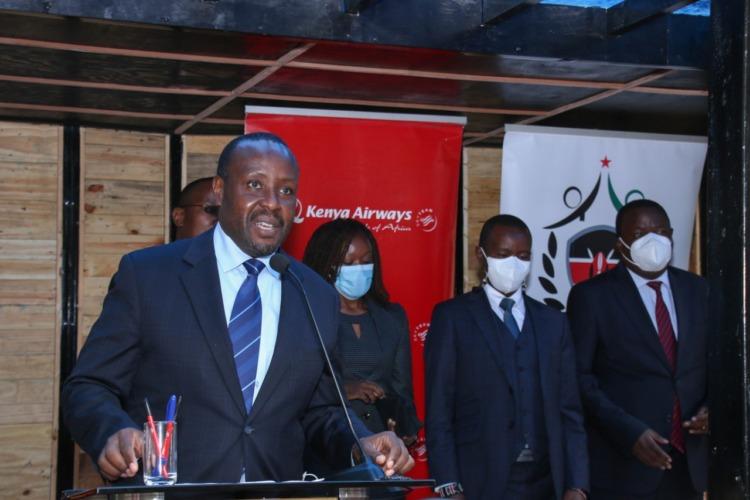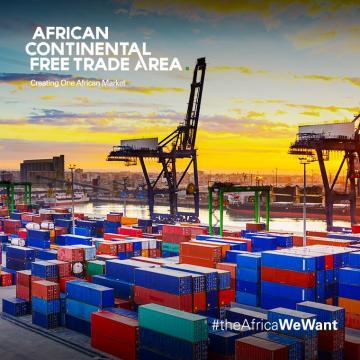- Stanbic PMI Report: Mixed performance as Kenya’s agriculture, construction offset manufacturing decline
- Uganda’s land management gets a tech makeover to boost transparency
- Nigeria’s output dips fastest in 19 months on a sharp rise in costs
- Apple faces growing backlash over Congo exploitation
- Why East Africa is staring at higher wheat prices in 2025
- Nairobi Gate SEZ pumps $7 million into Kenya’s agro-processing industry
- What impact will the US election have on Africa?
- Russia and Tanzania unite to double trade, boost Africa market access
Browsing: African SMEs
- Small scale firms in Africa urged to embrace technology, research, and development to power their growth at scale.
- African MSMEs have been challenged to tap opportunities presented by the African Continental Free Trade Area (AfCFTA) Agreement.
- Agriculture, manufacturing, ICT, minerals, and creative industries highlighted as sectors that have huge potential for MSMEs’ growth.
The African Union (AU) has called upon startups and micro, small, and medium-sized enterprises (MSMEs) across Africa to harness the power of innovation for their growth and sustainability. This appeal has been made by Albert Muchanga, the AU Commissioner for Economic Development, Trade, Tourism, Industry, and Minerals during the third African Union Micro, Small, and Medium-Sized Enterprises Forum, which is taking place between September 9 to 13 in Windhoek, Namibia, and virtually.
This forum, which is arguably one of Africa’s largest gathering of MSMEs, focuses on the theme: “Fostering Financial Empowerment and Educational Innovation for African …
Among the various ways to strengthen the private sector and thus promote African trade, African governments must enable the private sector to play an active role in realising regional integration objectives.…
- The Entrepreneur’s Odyssey is a mobile and tablet-friendly, a self-paced curriculum that includes online lessons across 21 modules with a total of 28 videos of approximately 20-30 minutes each
- Its launch comes at a time when the small business segment in the region has faced unprecedented changes in the wake of the COVID-19 pandemic, further fueled by the rapid acceleration of digital transformation and e-commerce
Mastercard Academy has launched ‘The Entrepreneur’s Odyssey’, a digital education platform that brings together a range of world-class academic and business resources to help small businesses learn and thrive.
The Entrepreneur’s Odyssey is a mobile and tablet-friendly, self-paced curriculum that includes online lessons across 21 modules with a total of 28 videos of approximately 20-30 minutes each.
According to Mastercard, the platform follows a five-pathway approach which is open to all aspiring and established entrepreneurs with no limits on the number of viewers and is …
Invest Africa has launched a new programme of support for over 500 African MSMEs.
In a statement, the company, which is a trade and investment platform for African markets, says it will be hosting the Next Generation Africa Forum to connect MSMEs across the Continent.
The forum will take place virtually on 16th September using a digital platform, with practical support from leading banks, VCs, multi-national tech companies and incubators, including Google, KPMG, DHL, Aon and 4G Capital.
“MSMEs form the backbone of Africa’s economies and are the engine of the region’s job creation drive, accounting for 70 percent of employment,” the company said in a statement.
The firm also noted that with a high proportion of informal enterprises, many of Africa’s MSMEs, which already faced significant challenges, have been hit hard by the Covid-19 pandemic.
Addressing the structural difficulties that small businesses in Africa face, will therefore be essential …
Business confidence for Small and Medium Enterprise (SME) across most sectors is on the rise, according to the latest research by Mastercard.
The inaugural Mastercard Middle East and Africa (MEA) SME Confidence Index found that 76 percent of SMEs in the food, beverage and entertainment sector are optimistic about the next 12 months.
Confidence levels were highest among businesses in retail, closely followed by food, beverage and entertainment.
Forecasts in this sector are also positive, with 72 percent of SMEs projecting revenues that will either grow or hold steady. Almost half 47 percent are projecting an increase.
Access to training, skills and digitization key for future growth
As many regional economies gradually enter the normalization and growth phase, and social restrictions continue to ease, small and medium sized businesses in the MEA region’s food, beverage and entertainment sector have identified access to training and development support (55 percent), upskilling staff …
A new report now indicates that women entrepreneurs and in the Middle East and Africa (MEA) are leading the way in tapping into the power of the digital economy to succeed and grow.
According to the inaugural Mastercard MEA SME Confidence Index, women-owned small and medium enterprises (SMEs) believe there are huge benefits of a cash-free economy to their businesses.
As such, 81 percent of the region’s women entrepreneurs have a digital presence for their businesses, compared to 68 percent of their male counterparts.
In terms of a digital footprint of the region’s women entrepreneurs, social media (71 percent) leads the way, followed by a company website (57 percent).
In the Middle East and North Africa, more women entrepreneurs had a website (71 percent) than a social media presence (55 percent).
It also found that over 80 percent of women entrepreneurs have digital readiness for their business compared to their …
Kenya’s national carrier Kenya Airways has launched a centre which it says will be used to mentor the youth.
In a statement, the company says the centre, dubbed ‘Fahari Innovation Hub’, will act as a springboard for new ideas and data-driven innovations to accelerate impact-driven solutions that address some of the societal and business challenges.
Kenya Airways Chief Executive Officer, Allan Kilavuka said the Fahari Innovation Hub has already been operating virtually for about one year.
He added that with the setting of a physical workspace, the hub will provide a centre for strategic innovation management offering opportunities for co-creation, collaboration, networking, research, and learning.
“At the pace at which change accelerates, especially now in the middle of a global pandemic, we have become increasingly aware of the need to be innovative as we position the business as a resilient, forward-looking and sustainable company with a deliberate inclusive agenda of …
READ ALSO: Why the African free trade area could be the game-changer for the continent& economies
Why Are Micro And Small Business A Subject Of Concern?
According to the World Bank, SMEs make up 90% of businesses in the world and cover more than 50% of the world’s employment. Formal small businesses contribute significantly to GDP. This contribution to GDP is significantly amplified when the informal sector is taken












